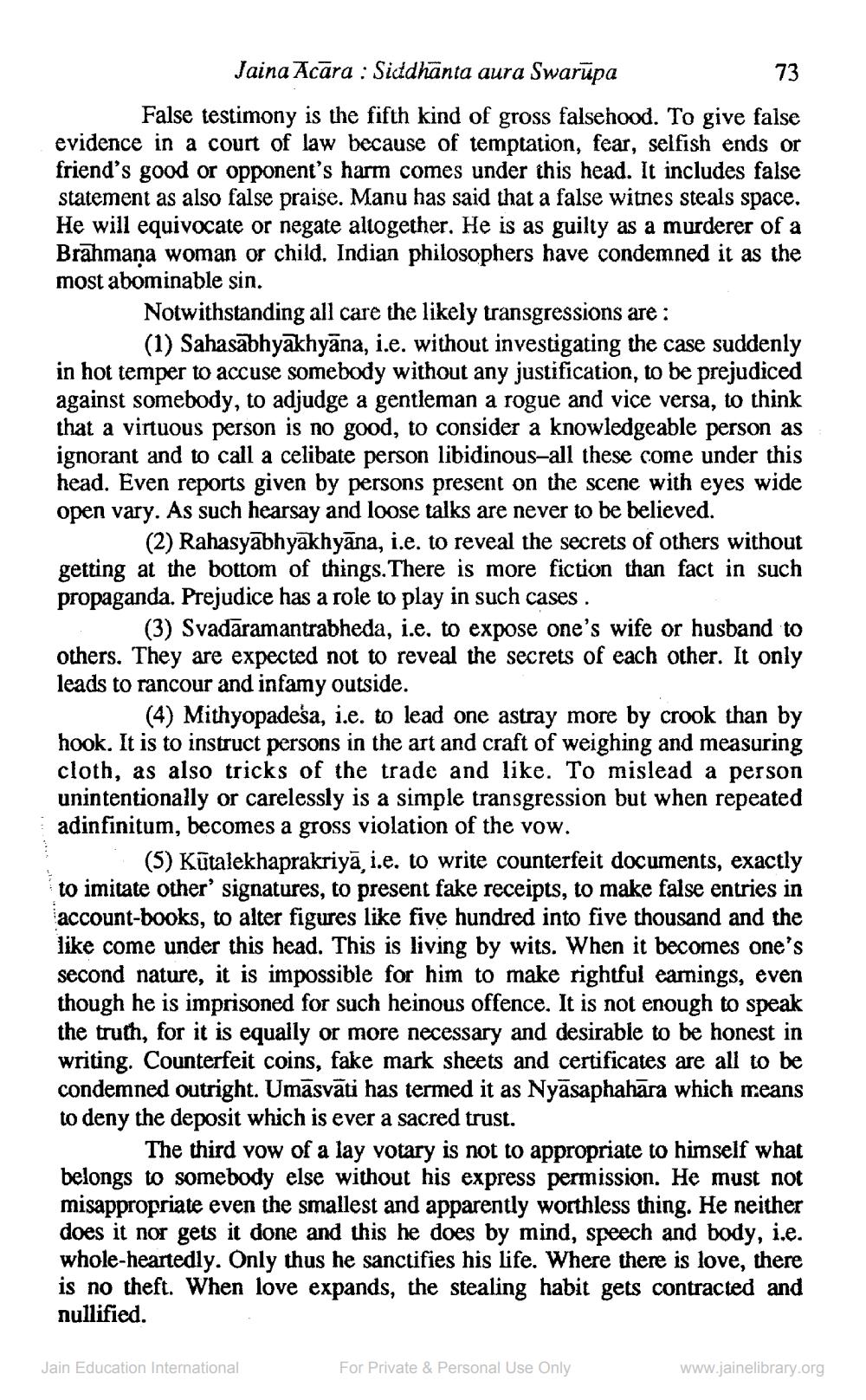________________
73
Jaina Acara : Siddhanta aura Swarupa False testimony is the fifth kind of gross falsehood. To give false evidence in a court of law because of temptation, fear, selfish ends or friend's good or opponent's harm comes under this head. It includes false statement as also false praise. Manu has said that a false witnes steals space. He will equivocate or negate altogether. He is as guilty as a murderer of a Brahmana woman or child. Indian philosophers have condemned it as the most abominable sin.
Notwithstanding all care the likely transgressions are :
(1) Sahasabhyakhyāna, i.e. without investigating the case suddenly in hot temper to accuse somebody without any justification, to be prejudiced against somebody, to adjudge a gentleman a rogue and vice versa, to think that a virtuous person is no good, to consider a knowledgeable person as ignorant and to call a celibate person libidinous-all these come under this head. Even reports given by persons present on the scene with eyes wide open vary. As such hearsay and loose talks are never to be believed.
(2) Rahasyābhyākhyāna, i.e. to reveal the secrets of others without getting at the bottom of things. There is more fiction than fact in such propaganda. Prejudice has a role to play in such cases.
(3) Svadāramantrabheda, i.e. to expose one's wife or husband to others. They are expected not to reveal the secrets of each other. It only leads to rancour and infamy outside.
(4) Mithyopadeśa, i.e. to lead one astray more by crook than by hook. It is to instruct persons in the art and craft of weighing and measuring cloth, as also tricks of the trade and like. To mislead a person unintentionally or carelessly is a simple transgression but when repeated adinfinitum, becomes a gross violation of the vow.
(5) Kütalekhaprakriyā i.e. to write counterfeit documents, exactly to imitate other' signatures, to present fake receipts, to make false entries in account-books, to alter figures like five hundred into five thousand and the like come under this head. This is living by wits. When it becomes one's second nature, it is impossible for him to make rightful earings, even though he is imprisoned for such heinous offence. It is not enough to speak the truth, for it is equally or more necessary and desirable to be honest in writing. Counterfeit coins, fake mark sheets and certificates are all to be condemned outright. Umāsvāti has termed it as Nyāsaphahāra which means to deny the deposit which is ever a sacred trust.
The third vow of a lay votary is not to appropriate to himself what belongs to somebody else without his express permission. He must not misappropriate even the smallest and apparently worthless thing. He neither does it nor gets it done and this he does by mind, speech and body, i.e. whole-heartedly. Only thus he sanctifies his life. Where there is love, there is no theft. When love expands, the stealing habit gets contracted and nullified.
Jain Education International
For Private & Personal Use Only
www.jainelibrary.org




